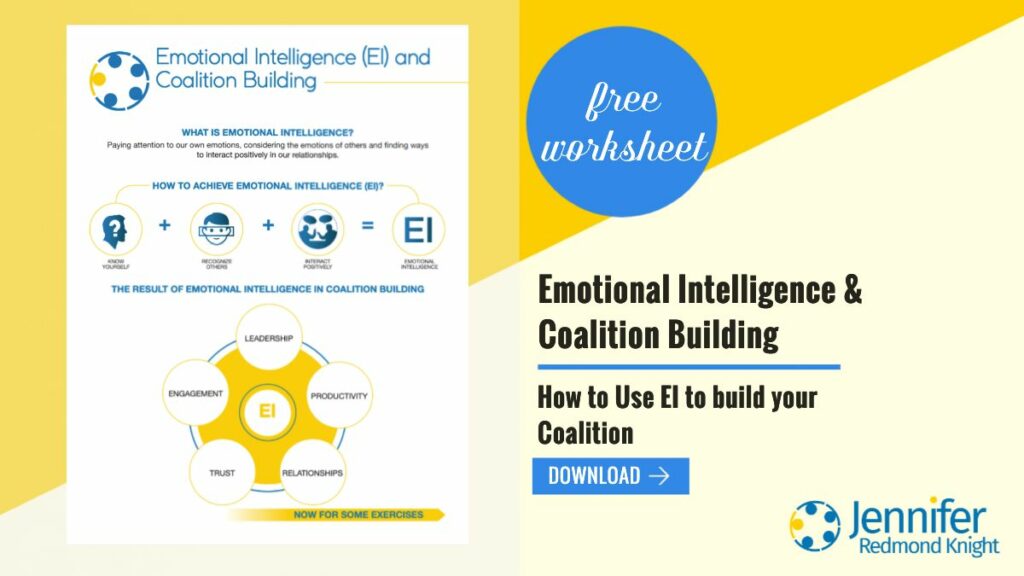Since our coalition work is highly dependent upon relationship-building, our ability to interact positively and manage our relationships well is a critical component of coalition building. While overall Emotional intelligence, self awareness and self management and social awareness are important, the concept of relationship management brings it all together. When we know ourselves and others and can manage ourselves well, we can then move to focusing on managing our relationships well. While some relationships are easier to manage than others, when we develop higher levels of Emotional intelligence, we are able to positively interact with even those who may be difficult. Join me this week for three ideas on how to increase your relationship management and positive interactions with others.
Seek win-win opportunities.
In our coalition work, we have a combination of people who are paid to do the work, those who are paid by their organizations to participate and those who are volunteering their time. As we consider how to manage relationships well, we need to listen to one another and find out what is important to each of our coalition members and how it aligns with the purpose of the coalition, workgroup or team. When we understand what is important to one another and recognize the skills and competencies of our coalition members, we can identify and pursue win-win opportunities. When we do this, we are enhancing our positive interactions with others and creating opportunities to do more together than we could on our own.
Believe the best in others.
If we begin our relationships assuming positive intent, we are more likely to be able to interact positively with them. When people decide to join a coalition, they are often drawn to the mission and purpose of the coalition. In this alignment, we can begin by assuming the best in them and encouraging the best from them. I know that some of our coalition members can be more difficult than others and we may have had unpleasant interactions with some of them in the past. We do not need to ignore what has happened in order to believe the best in others. In many situations, we need to better understand the other person’s perspective and also recognize how we may have contributed to the challenges (yes, self awareness and self management come back again!). One of the best ways to practice believing the best in others is to speak the best about others in their presence or their absence.
Proactively communicate.
In our coalition and relationship work, we all make assumptions and have expectations of others. When our coalition members do not meet those expectations, we can become irritated, disappointed or frustrated. This makes our ability to interact positively much more difficult. Alternatively, when we are intentional about communicating with our coalition members, we are able to interact more positively with them. When we take the time to call or schedule time to discuss a situation with someone, we are more likely to address the situation positively and preserve the relationship. By proactively communicating (which includes listening), we create opportunities to listen, learn and work together more effectively. While this applies to individual relationships, it also applies to the coalition overall. When we take the time to proactively communicate during meetings and allow for discussion of potentially confusing or challenging topics, we support relationship management for the overall coalition.
As we continue to practice developing our coalition superpower, I encourage you to download my Emotional Intelligence and Coalition Building worksheet that will guide you through reflection questions and additional ideas to consider.

Photo by Desola Lanre-Ologun on Unsplash

